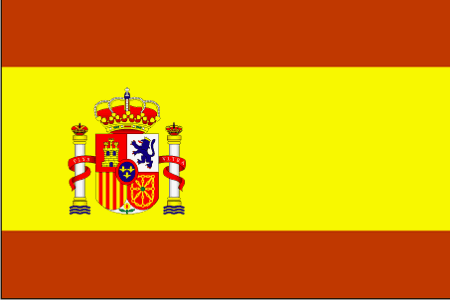Spanish judges' human rights campaign comes under pressure
 Madrid - More than a decade after the Spanish judiciary launched its crusade for universal justice, pressure is mounting on the government to restrict judges' scope for investigating alleged human rights crimes in other countries.
Madrid - More than a decade after the Spanish judiciary launched its crusade for universal justice, pressure is mounting on the government to restrict judges' scope for investigating alleged human rights crimes in other countries.
Israel has reacted angrily to a Spanish inquiry into a 2002 Gaza bombing, urging the government and judiciary to do their "utmost" to stop what it describes as a Palestinian attempt to "exploit" the Spanish judicial system.
The Chinese embassy in Madrid called on the government to take "immediate" measures against a probe into alleged deaths and disappearances in Tibet, warning about "damage" to bilateral relations.
And at a time when Spanish Prime Minister Jose Luis Rodriguez Zapatero's government is hoping to reinforce relations with the United States, two Spanish inquiries into torture at the Guantanamo prison camp are threatening to create friction with Washington.
"We cannot become the judicial cops of the world," said Carlos Divar, president of the judges' organ CGPJ, arguing that such a role would create "daily diplomatic conflicts."
Such criticism is not shared by many human rights activists, who say Spanish judges have played an important role in increasing human rights accountability.
The government was nevertheless expected to seek a legal reform limiting international human rights investigations to cases with obvious links to Spain.
The Spanish judiciary first became known for its interest in issues of universal justice when National Court judge Baltasar Garzon made a vain attempt to extradite former Chilean dictator Augusto Pinochet from London in 1998.
The National Court, where Garzon works, is now investigating about a dozen cases affecting eight countries: the United States, China, Guatemala, El Salvador, Rwanda, Morocco, Germany and Israel.
Judges at the court are handling two inquiries into torture at Guantanamo, one of which could lead them to investigate former US attorney-general Alberto Gonzales and five other former officials of the George W Bush administration.
Judges are also probing seven Israelis, including former defence minister Benjamin Ben-Eliezer, over a 2002 Gaza bombing that killed a Hamas leader and 14 others; and eight Chinese political or military leaders, including three ministers, over the situation in Tibet.
Initially, such investigations involved Spanish citizens, but the court has also begun accepting cases with no links to Spain, under the principle of universal justice for grave crimes such as genocide.
Spanish legislation makes it relatively easy for associations to lodge judicial complaints related to universal justice, a factor which has led to such cases proliferating in Spain, the daily El Pais reported.
However, the Spanish investigations have had little effect, the only conviction being that of former Argentine navy captain Adolfo Scilingo.
He was detained in Spain and sentenced to more than 1,000 years in prison for helping to throw government opponents down from airplanes during Argentina's 1976-83 military dictatorship.
Despite the lack of direct results, the inquiries are seen as having increased pressure on suspected human rights abusers, making it more difficult for them travel abroad for fear of arrest, and encouraging their judicial pursuit in countries such as Chile and Argentina.
US media interest in the Spanish probes into abuses at Guantanamo could contribute to the prison camp coming under legal scrutiny in the United States, human rights campaigners argue.
"As long as governments do not have the political will to create an efficient tribunal, the only way is to introduce universal justice in the largest possible number of countries," lawyer Manuel Olle said.
Opponents of such probes accuse judges of seeking notoriety by launching high-profile international investigations while their overstretched courts have difficulties dealing with ordinary delinquency at home.
Others point out that Spain is ill-placed to judge human rights violations in other countries, given that it has not dealt judicially with the 1939-75 dictatorship of General Francisco Franco, who is held responsible for the deaths of tens of thousands of his opponents.
But above all, the government is keen to avoid diplomatic problems at a time when Spain is trying to increase its global stature, seeking an entry into the Group of 20 (G20) and a bigger role in attempts to achieve peace in the Middle East.
"Unequivocally democratic" countries should investigate their own alleged human rights abuses before Spain gets involved, Justice Minister Francisco Caamano said.
Spanish cross-border human rights investigations have also come under pressure from prosecutors expressing reserves about one of the Guantanamo probes, and opposing the case against Israel.